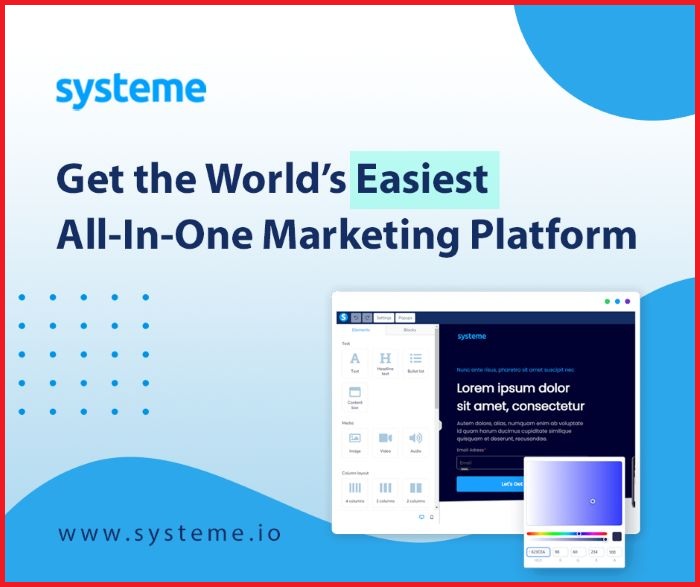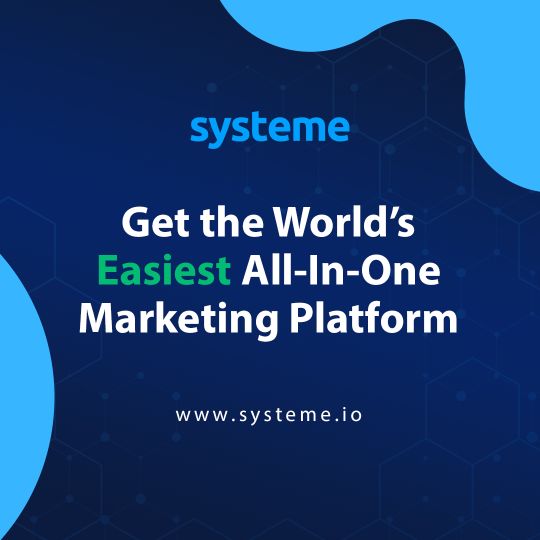Finding the right PPC management company can significantly boost your advertising efforts and drive better results for your business. As you explore options, you need to identify firms that truly understand the intricacies of pay-per-click advertising. The best PPC management company offers specialized services tailored to your goals and maximizes your return on investment.

When selecting a PPC management company, consider their expertise and approach to managing campaigns. Look for agencies that provide advanced strategies and have a proven track record with clients in your industry. This ensures you benefit from their experience and insights into the latest trends.
Performance tracking is critical to success in PPC campaigns. A top company will focus on comprehensive analytics to optimize ad spend and improve outcomes. By leveraging platform-specific strategies, they ensure your ads reach the right audience at the right time.
Key Takeaways
- Choose a PPC company that aligns with your business goals.
- Expertise in advanced strategies is essential for success.
- Data-driven analytics enhance campaign performance.
Understanding PPC Management
Pay-per-click (PPC) management is crucial for optimizing online ad campaigns and driving targeted traffic to your business. It helps in achieving better return on investment (ROI) and ensures that your digital advertising efforts are effective and efficient.
Basics of PPC
PPC advertising involves paying for clicks on your ads, which appear in search engines or other platforms. You only pay when someone clicks on your ad, making it a cost-effective way to drive traffic. Key elements include keyword research, ad creation, and bid management. Selecting the right keywords is vital, as they determine when your ad will show up. Ad quality impacts performance, which is influenced by relevance and landing page quality.
Benefits of PPC Management Services
Hiring a PPC management service can optimize your advertising efforts by improving conversion rates and minimizing costs. These services handle all aspects, from strategy development to campaign monitoring and adjustments. They leverage expertise to refine bidding strategies and enhance ad copy to boost performance. This not only saves time but also increases your ROI by targeting the right audience with precision.
Differentiating PPC from SEO
PPC and search engine optimization (SEO) are both key parts of digital marketing but serve different purposes. PPC delivers immediate traffic by placing ads at the top of search results, while SEO focuses on improving organic rankings over time. Both methods aim to drive visibility, but PPC offers quicker results and direct control over your ad budget, making it suitable for pressing marketing needs or new promotions. SEO, on the other hand, builds long-term credibility and traffic through content and link-building efforts.
Selecting a PPC Management Company
When choosing a PPC management company, it’s crucial to focus on key factors that will impact your advertising success. You’ll want to understand pricing models and evaluate the expertise and track record of potential partners.
Key Factors to Consider
It’s important to determine your business needs and goals first. Consider whether you need a full-service PPC agency that can handle multiple aspects of your digital marketing, or a specialized firm focusing solely on PPC. Look into the types of tools they use and whether they are up-to-date with the latest technologies. Client feedback is valuable too, as reviews can reveal a lot about a company’s effectiveness in communication and project management. Also, reliable agencies usually provide detailed case studies to demonstrate their past successes, showcasing their ability to optimize campaigns.
Understanding Pricing Models
Pricing can vary widely among PPC companies. Some charge a flat fee, while others operate on a percentage of ad spend or a performance-based model. It’s important to understand what each pricing model entails and how it aligns with your budget. If an agency’s costs seem too low, it might signal limited services or less experienced staff. High costs, on the other hand, should align with proven results and exceptional service. Transparent pricing is a good indication of a trustworthy company. Be sure to ask about any additional fees that might not be immediately obvious.
Evaluating PPC Expertise and Track Record
Assess the agency’s experience by checking how long they’ve been in business and their industry focus. An agency with a track record in your specific field can offer tailored insights and strategies. Look for case studies that show their problem-solving skills and success rates. It’s also essential to understand their approach to campaign management and optimization. A good PPC company will offer detailed reporting and analytics. This helps in measuring the effectiveness of campaigns and making data-driven decisions. Make sure they have a proactive approach to adjusting strategies based on performance data.
Core Services Offered by Top PPC Agencies
Effective PPC agencies provide a range of services designed to improve campaign performance. These include analyzing search trends, crafting ad strategies, and refining user experiences. The goal is to boost ad quality and enhance conversion rates by using data-driven methods.
Keyword Research and Selection
Keyword research is a fundamental part of any PPC strategy. A top agency will focus on identifying the most relevant and high-traffic keywords for your industry. This involves using analytics tools to understand search volume and competition.
Selecting the right keywords is crucial for ad performance. High-quality keywords can increase the ad quality score, leading to lower costs and better positioning in search results. Effective keyword selection also helps in reaching the intended audience and driving qualified traffic to your website.
Ad Campaign Setup and Management
Setting up ad campaigns involves more than just creating ads. It includes designing the structure of your campaigns to align with your business goals. A skilled PPC agency will manage ad groups, allocate budgets, and adjust bids to maximize ROI.
Continuous management is key to a successful campaign. Agencies monitor ad performance, tweaking elements as needed to improve results. They focus on ad quality by testing different formats, headlines, and calls to action to find what works best.
Conversion Rate Optimization
Conversion rate optimization (CRO) ensures that your ads lead to meaningful actions. Top agencies employ a range of tactics to ensure users complete desired actions, such as filling out a form or making a purchase.
Strategies include A/B testing of landing pages to identify the most effective designs. They also analyze user behavior to streamline the conversion process. By improving the user experience, CRO can significantly increase your conversion rates, delivering better returns on your ad spend.
Advanced PPC Techniques and Strategies
Enhancing your PPC campaigns involves using advanced tactics like retargeting, leveraging social media, and optimizing for e-commerce. These strategies can boost your results by increasing engagement, improving targeting, and converting more leads into sales.
Utilizing Retargeting and Remarketing
Retargeting and remarketing are powerful techniques to reconnect with potential customers who have previously interacted with your brand. By using cookies or tracking pixels, you can deliver tailored ads to users, encouraging them to return and complete a purchase. This strategy is particularly effective for SaaS and B2B companies, where the buying process is longer.
Use retargeting lists to segment audiences based on their actions. For example, users who abandoned a cart might see display ads offering discounts. Retargeting through Google Ads or Facebook Ads can significantly improve conversion rates and boosts ROI by reminding users of products they once viewed. Attracting back such potential customers increases the chances of finalizing sales.
Exploiting Social Media Platforms
Social media platforms like Facebook and Instagram offer unique opportunities for precise audience targeting. These platforms are ideal for displaying PPC ads due to their rich user data and wide-reaching networks. Through behavior-based targeting, you can tailor ads to reach users based on interests, demographics, and past interactions, making it a goldmine for advertisers.
For SaaS and B2B advertisers, LinkedIn is essential due to its professional user base. You can target users by job title, industry, and even company size. Meanwhile, Instagram and Pinterest are perfect for visually appealing products and brands. Mastering PPC in these channels helps you access a broad audience and convert those interactions into leads and sales.
Mastering E-commerce PPC
Optimizing PPC campaigns for e-commerce requires focusing on product listings, keyword selection, and bidding strategies. Using platforms like Amazon PPC allows you to target shoppers actively searching for similar products. By setting the right bids and keywords, your products appear in front of the right audience at the perfect time.
Employ negative keywords to refine targeting and avoid wasting budget on irrelevant searches. Highlight attractive product features and utilize A/B testing to determine the most effective ad copy. Emphasizing customer reviews and competitive pricing in PPC ads can lead to higher click-through rates and conversions, reinforcing your e-commerce success.
Performance Metrics and Analytics
When managing PPC campaigns, tracking the right metrics is essential. Understanding different performance indicators helps improve your advertising strategy and ensure that your budget is being put to good use. Focus on KPIs, ROI, ROAS, and costs.
Key Performance Indicators (KPIs)
Key Performance Indicators (KPIs) are crucial for assessing the efficiency of your PPC campaigns. Your primary KPIs may include click-through rates (CTR), conversion rates, and quality scores. CTR measures the percentage of people who click on your ad after seeing it, indicating how compelling your ad is. Conversion rates show how many clicks lead to a desired action, like a purchase, shedding light on your ability to engage and convert prospects. Quality scores, provided by platforms like Google Ads, evaluate the relevance of your ads and keywords, allowing you to fine-tune for better performance.
Measuring ROI and ROAS
Return on Investment (ROI) and Return on Ad Spend (ROAS) help you assess financial performance. ROI compares the net profit to the total campaign cost, giving an idea of overall profitability. ROAS, on the other hand, focuses on revenue generated per ad dollar spent. This metric can be particularly useful for determining how effective each dollar is in generating sales. For PPC campaigns, a strong ROAS means your ads are not only reaching potential customers but also converting them efficiently. By closely monitoring these metrics, you can optimize budget allocation and focus on high-performing strategies.
Customer Acquisition Cost and Lifetime Value
Understanding Customer Acquisition Cost (CAC) allows you to gauge how much you spend to gain a single customer. It’s calculated by dividing your total promotional costs by the number of new customers. Balancing CAC with Customer Lifetime Value (CLV) is crucial. CLV estimates the net profit from a customer over the entire business relationship. For a successful PPC strategy, aim for a lower CAC in comparison to the CLV to ensure sustainable growth. Tools for conversion rate optimization can help you enhance the effectiveness of your marketing expenses by lowering the CAC and maximizing revenue.
Leveraging Platform-Specific Strategies
To achieve the best results in PPC campaigns, it’s essential to tailor strategies to the unique features of each advertising platform. By focusing on platform-specific tactics, you can optimize campaign performance and increase returns.
Optimizing for Google Ads
When using Google Ads, it’s important to utilize targeted keywords and ad extensions. Keywords should align with user intent. This helps match ads with the most relevant searches. Ad extensions, such as site links or callouts, enhance click-through rates by providing additional information.
Implementing a structured account hierarchy with campaigns, ad groups, and targeted ads improves focus. This ensures that bidding and budgets reflect your goals. Using remarketing lists for search ads (RLSA) can target past website visitors, increasing conversion chances. Regular A/B testing of ad copy also helps identify the most effective messaging.
Maximizing ROI on Facebook Ads
With Facebook Ads, detailed audience targeting is crucial. Utilize demographic information, interests, and behaviors to reach the most relevant users. This platform offers robust tools to create lookalike audiences, allowing you to find new users similar to existing customers.
Engage users with compelling visuals and clear calls to action. This can significantly boost engagement and conversion rates. Regularly monitor ad performance through Facebook’s analytics tools. Adjust targeting, creative elements, and bids as needed. Experimenting with video content can be particularly effective, as it often leads to higher engagement.
Expanding Reach with Amazon and Microsoft Ads
For Amazon Ads, you should emphasize product page optimization to enhance visibility and sales. This involves using precise keywords and high-quality images. Sponsored Products and Sponsored Brands campaigns can effectively increase product discoverability.
Using Microsoft Ads (formerly Bing Ads) benefits your campaign by reaching audiences that might not use Google. You need to tailor keywords and bids specifically for this platform. Take advantage of lower competition and costs. Both Amazon and Microsoft offer unique audience insights that can inform your overall digital marketing strategy.
Regular reviews and adjustments are key to ensuring these campaigns remain effective and aligned with your marketing goals.
Industry Trends and Future Outlook
In the fast-paced world of digital marketing, staying ahead means keeping a keen eye on emerging technologies and trends. Significant advancements in AI and data privacy are shaping the way PPC campaigns are managed. Marketers must adapt strategies to navigate these changes and anticipate future shifts to maintain a competitive edge.
Emerging Technologies in PPC
New technologies are transforming the PPC landscape. AI-powered tools enhance efficiency, allowing for more precise targeting and ad placements. These advancements help automate processes, saving time and improving accuracy in campaign management.
Voice and video ads are becoming popular, fueled by smarter devices. Integrating these formats into your marketing strategy can increase engagement, as consumers rely on diverse sources for information. Staying updated with these innovations is crucial for optimizing ad effectiveness.
Adapting to Market Changes
The digital marketing field is continually evolving, influenced by new regulations and consumer behavior shifts. Data privacy changes, like stricter regulations, affect how marketers collect and use data. It’s essential to respect user privacy while still delivering personalized experiences.
Ad strategies need to be flexible to address increasing competition and fluctuating consumer interests. Testing various ad platforms and adjusting bids and budgets ensure your campaigns remain effective. Focusing on consumer trends will allow your strategy to evolve efficiently, aligning with market demands.
Forecasting PPC Evolution
Looking forward, PPC is expected to integrate more personalized and interactive content. Technologies like augmented reality could introduce new ad formats. As digital marketing tools improve, expect this trend to continue making campaigns more engaging and targeted.
Additionally, higher demand for transparency and recordable results will push for better performance metrics. You’ll need to track ROI effectively, ensuring that ads align with business goals. Adapting to these trends will require ongoing learning and investments in new software, keeping you competitive in the shifting marketing landscape.
Frequently Asked Questions
Navigating the world of PPC management can be complex. Understanding what to expect from a PPC agency can help improve your advertising outcomes and ensure you choose the right partner for your needs.
How does an agency’s expertise affect PPC management success?
An agency with extensive experience can adapt to changes in ad platforms and target the right audience efficiently. This knowledge is crucial for optimizing campaigns and ensuring good returns on investment. Consulting agencies with specialized PPC knowledge often leads to better campaign performance.
What factors should be considered when choosing a PPC management agency?
Consider an agency’s track record, the tools they use, and their approach to communication. Look for client testimonials, case studies, and clear strategies for achieving your specific goals. It’s important to align with an agency that understands your industry’s dynamics.
How do PPC management costs vary between agencies?
Costs can differ based on several factors, such as the scope of work and the agency’s experience level. Some agencies charge a flat fee, while others work on a percentage of your advertising spend. Understanding these variations helps you choose a plan that suits your budget and expectations.
What qualifications should a reputable PPC management company have?
A credible agency should hold certifications from major platforms like Google and Bing. They should also have a proven track record with client success stories and a team of qualified PPC specialists. Their expertise in keyword research, ad creation, and analytics is essential.
Are there any industry-specific PPC management companies that outperform generalized ones?
Some agencies specialize in certain industries, which can be beneficial if they understand unique market demands and trends. For example, Ignite Visibility is noted for its innovative approach in digital marketing and PPC management.
How do agencies measure and report success in PPC campaigns?
Agencies often use key metrics such as conversion rates, cost per acquisition, and return on ad spend to assess success.
Regular, transparent reporting on these metrics helps you understand the effectiveness of your campaigns. It also helps you make informed decisions on future strategies.





